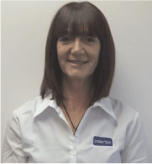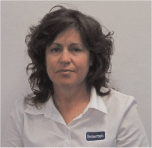Integrating human factors and prevention systems to improve safe operations and performance
Jane Austin A and Kerry Houston AIntertek Consulting & Training.
The APPEA Journal 53(2) 494-494 https://doi.org/10.1071/AJ12105
Published: 2013
Abstract
The high-risk nature of the oil and gas industry means the search for best practices to ensure employees suffer no harm is ongoing. Our industry has undergone multiple-step changes in safety, including the eras of death, engineering, regulations, and, more recently, behaviours. The unifying aspect to expand the results achieved from these step changes is the seamless merging of human factors and prevention systems, which are explored in further detail in this extended abstract.
Human factors are how individuals behave physically and psychologically to their work environment. Prevention systems are the equipment, systems, and processes the organisation provides and implements to keep individuals safe in the work environment. The manner in which human factors and prevention systems collaborate delineates Intertek’s processes in safety.
To better understand both human factors and prevention systems, the authors analysed their sub-components, ultimately making their use more relevant for the needs of this industry. A consistent understanding of each subsequently allows better identification of where the gaps may exist and allows focus on processes for not only improved business results but also achievement of no harm to employees. Although this extended abstract primarily concentrates on human factors, a means of assessing employees’ abilities to behave in their work environment alongside an organisation’s prevention systems is also discussed.

Jane is a registered psychologist with more than 17 years of experience working with individuals and groups. Her previous work in the fields of both clinical neuropsychology and organisational psychology assists her to provide a broad range of services in her Intertek consulting role. She has worked both nationally and internationally with medium to large multinational organisations, mainly in the mining and energy/utilities industries. A strong ability to initiate and grow one on one and group relationships, to quickly grasp the client needs, and develop and offer possible solutions has been instrumental in her success. Programs and areas of specialty include leadership development, coaching, team development, culture change, psychological assessment for development and recruiting, contractor engagement, and alignment and the enhancement of individual and organisational approaches to health and safety. She is skilled in presenting information clearly and succinctly to all levels of staff from operators to executive; she brings both practical and research expertise to her work. In 2004, she completed a PhD: the investigation of the impact of stress, trauma, and coping on neurocognitive functioning in individuals working within a large organisation. |

Kerry has worked in education and leadership training for the past 21 years and has specialised in the oil and gas sector since 2001. She is an accomplished safety leadership trainer and has managed numerous other on-site programs in areas such as operational performance improvement, behavioural-based safety observations, risk management, and front-line management. Her consultancy experience includes the delivery of effective management systems to balance work, people, systems, and the environment. She has worked extensively off shore in Africa, Europe, North Sea, Asia, Libya, Brazil, and the US for various clients. Before joining Intertek Moody Group, she was a TAFE lecturer, specialising in outdoor leadership, risk management, and recreation programs. She then owned and operated a successful adventure-training company for 10 years. She is one of Intertek’s most experienced and accomplished coaches. Since 2007 her key role has been to implement a structured approach to Intertek’s rig follow-up process. This incorporates managing a consistent team onboard various vessels/rigs, ensuring that the client’s objectives and Intertek’s standards are being achieved while supporting their progress through one-on-one coaching. |
References
Endsley, M.R. (1995). Towards a theory of situation awareness in dynamic systems. Human Factors 37, 65–84.Gordon, E., 2000—Integrative neuroscience: bringing together biological, psychological and clinical models of the human brain. Singapore: Harwood Academic Publishers.
International Association of Oil and Gas Producers, 2012—Cognitive issues associated with process safety and environmental incidents. Report no. 460. London, UK: International Association of Oil and Gas Producers.
Jeannot, E., Kelly, C., and Thompson, D., 2003—The development of situation awareness measures in ATM systems. Brussels, Belgium: Eurocontrol.
Kahneman, D., 2012—Thinking, fast and slow. Penguin: Australasia.
Rock, D., 2009—Your brain at work. New York, US: HarperCollins.
Rock, D., 2011—What inequality does to your brain. Accessed 30 May 2013. http://www.huffingtonpost.com/david-rock/psychology-of-inequality_b_1075227.html.
The National Offshore Petroleum Safety and Environmental Management Authority (NOPSEMA), 2012—Human factors: personnel resourcing. Accessed 30 May 2013. http://www.nopsema.gov.au/assets/document/N-06300-IP1040-Human-Factors-Information-Paper-Personnel-Resourcing.pdf
Tversky, A., and Kahneman, D. (1991). Loss aversion in riskless choice: a reference-dependent model. The Quarterly Journal of Economics 106, 1,039–61.
Young, S.G., Bernstein, M.J., and Hugenberg, K. (2010). When do own-group biases in face recognition occur? Encoding versus post-encoding. Social Cognition 28, 240–50.


